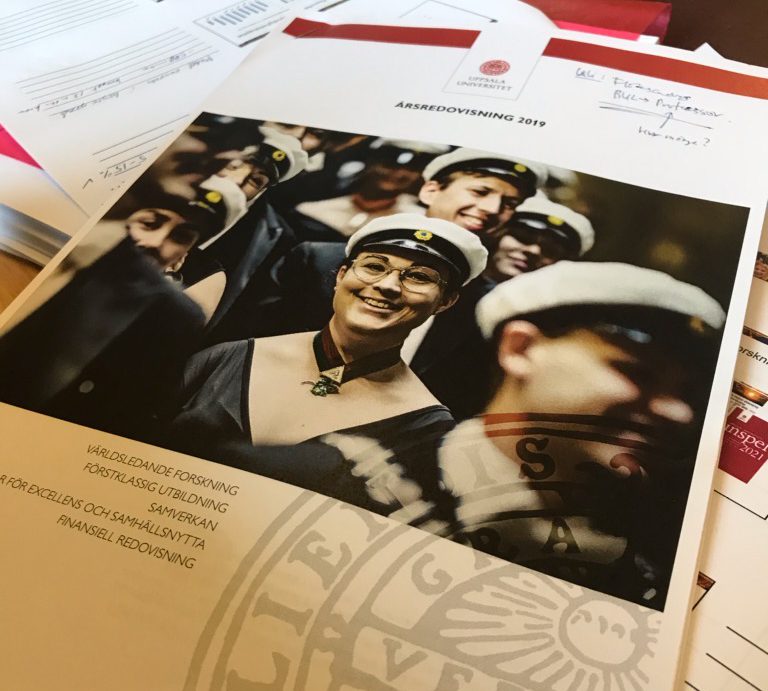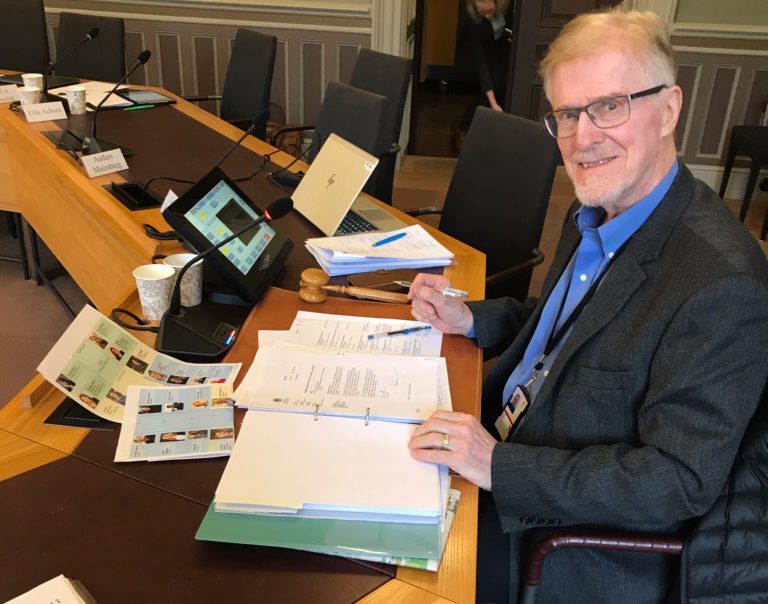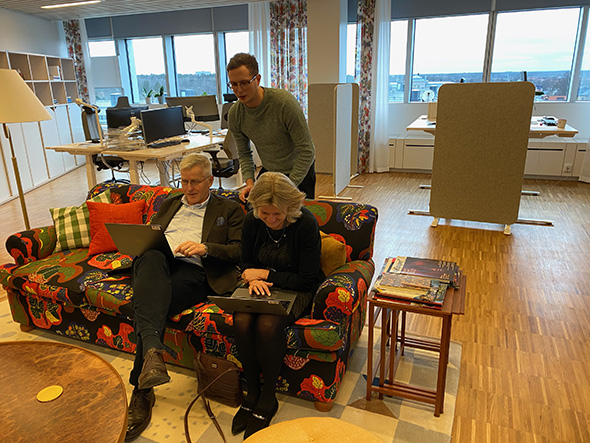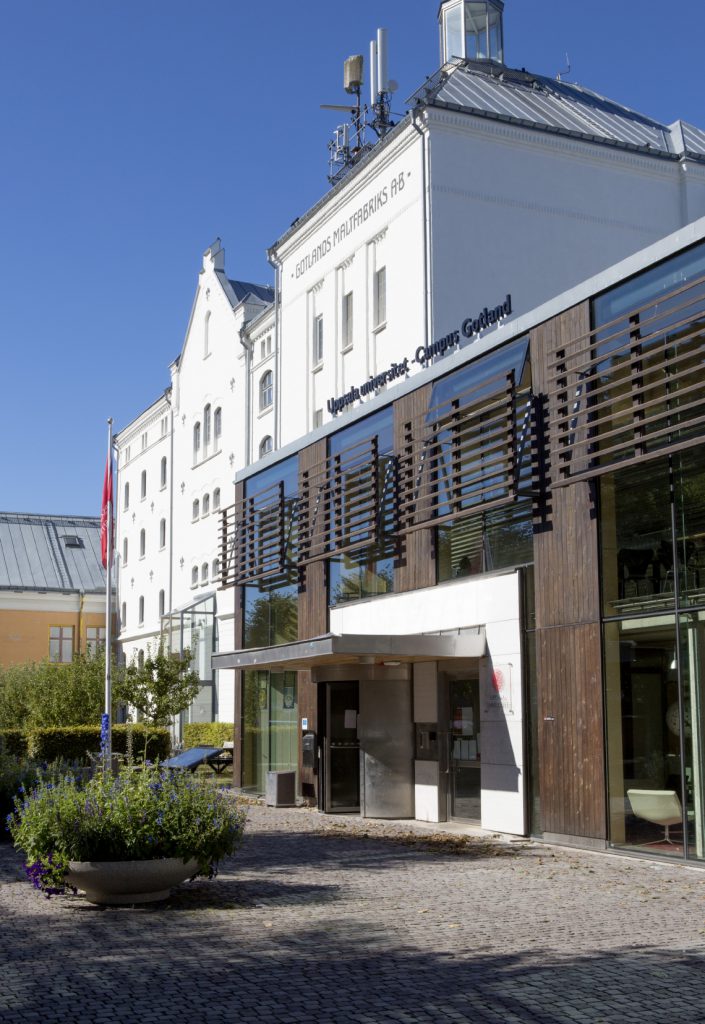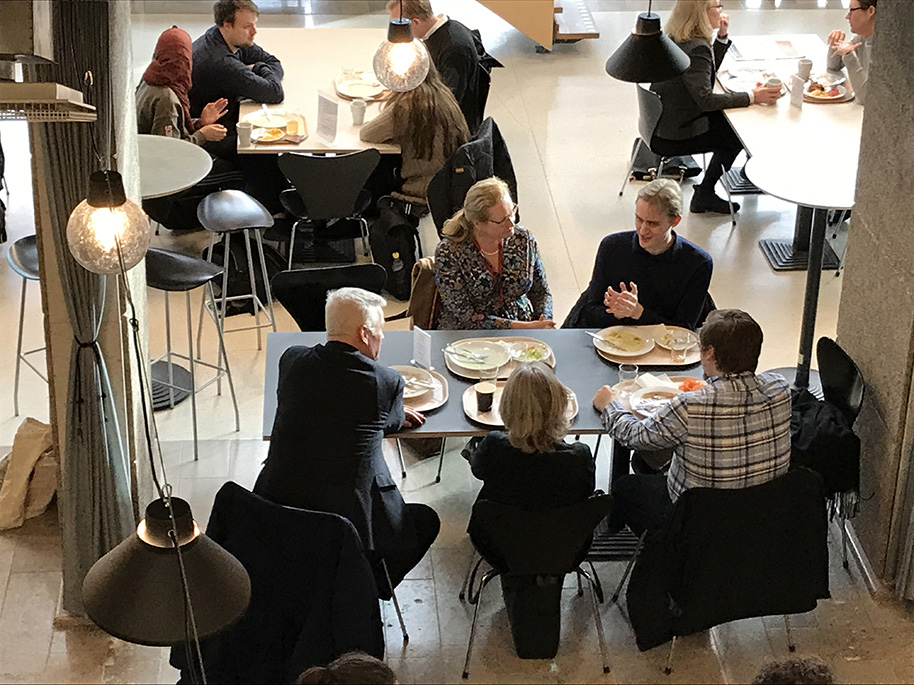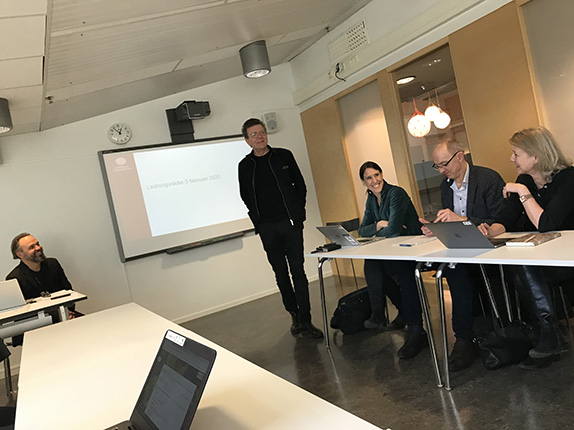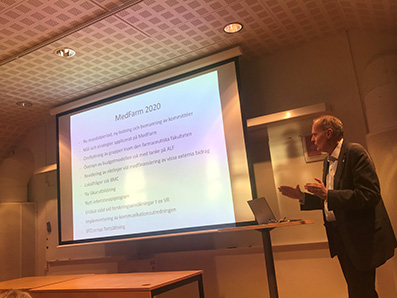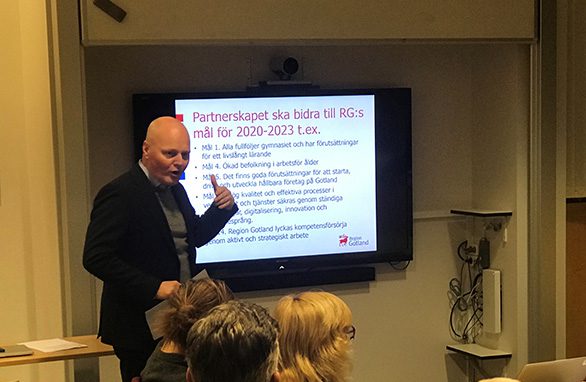The upcoming audit of the University’s quality assurance system, the library inquiry, the implementation of Mission, Goals and Strategies, the EUN application ENLIGHT, the Appointment Regulations and the art of making a world-class handover when you leave office. Yesterday’s deans day was busy, with many productive discussions on issues that all relate to our University’s future development.
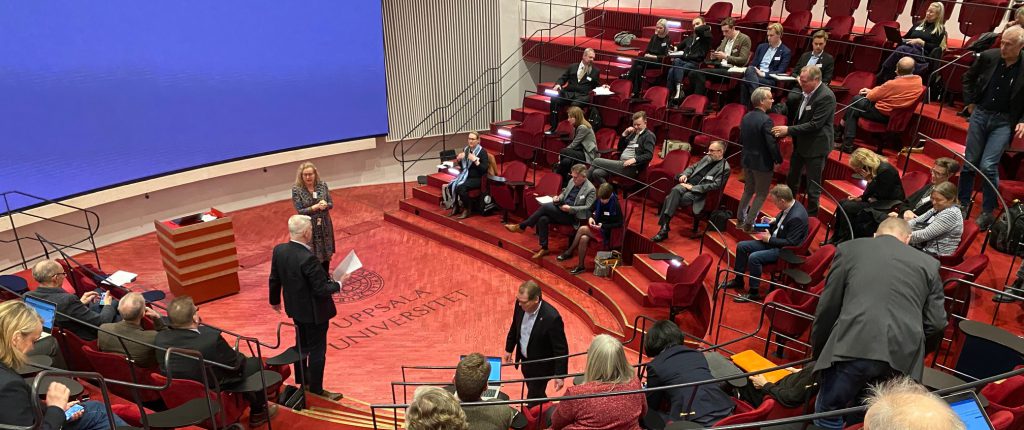
The morning news broadcasts had been full of the latest on the coronavirus so we began with a reminder of the simple things we all can do to reduce the potential risk of infection. Wash your hands, cough in the crook of your arm and use Zoom for virtual meetings. It is also important to book travel via Lingmerths, as this makes it easy for the University to obtain a report on the whereabouts of our staff around the world. The assistant infectious disease control specialist in Region Uppsala, Helena Palmgren, joined us by videolink to update us on the situation.
Preparations are under way for the upcoming audit of our quality assurance systems by the Swedish Higher Education Authority. We have to describe how we work on assuring and enhancing the quality of our courses and programmes at all levels. The major task is the self-evaluation, which will involve many University employees. We have a quality assurance system that we believe in, but naturally we must be alert to opportunities for improvement. Also, it may be a challenge to describe the quality assurance procedures at our decentralised University in a way that outsiders find comprehensible and convincing. A snap survey of those present yielded very interesting indications of things that may need particular attention in the work ahead. Very useful!
The discussion on how best to identify indicators for following up the University’s Mission, Goals and Strategies gave a clear picture of the way ahead and will result in instructions from the Vice-Chancellor to the disciplinary domains. We agreed that the best approach is to start at a decentralised level when identifying how best to achieve our goals.
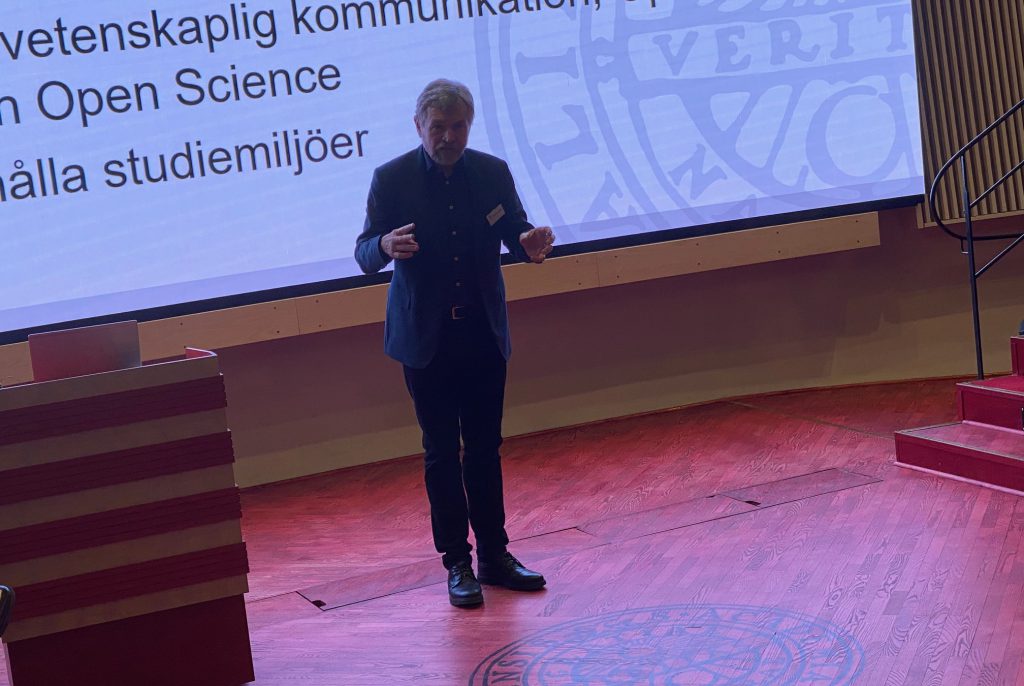
Inquiry chair Björn Brorström also gave us a preview of the upcoming report of the library inquiry, which is due in mid-March. We noted that our development-oriented library meets high standards and is appreciated throughout the University. The library has evolved over the years from a physical place to a resource that can be accessed from anywhere. However, there are challenges and important decisions on priorities lie ahead in this changing field of activities. The inquiry will provide a good basis for further development.
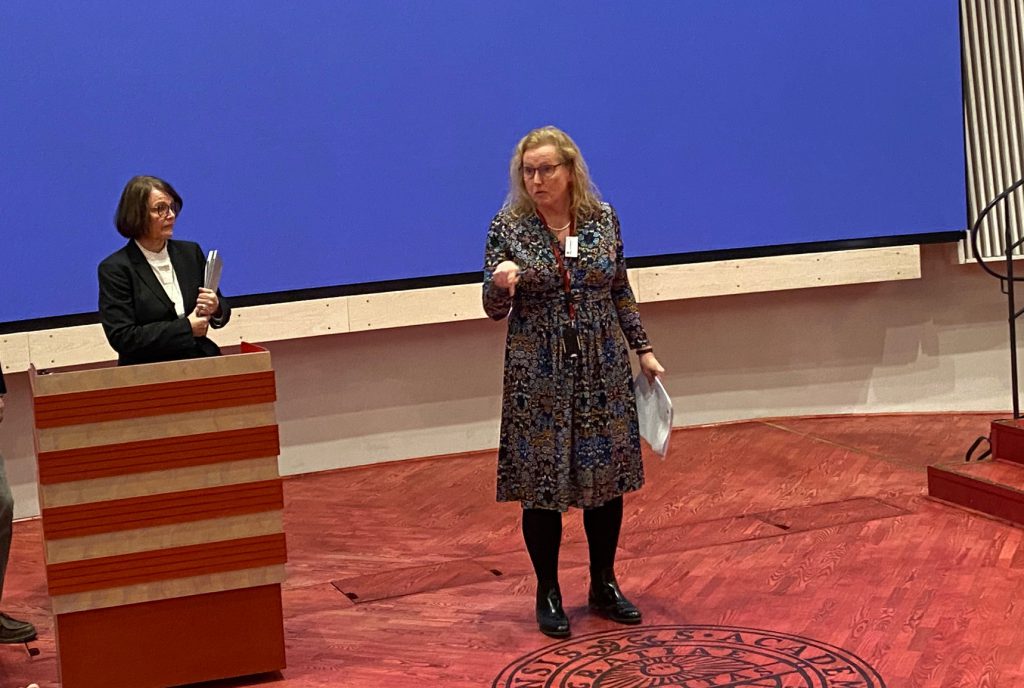
The afternoon session included an overview of the EUN application ENLIGHT, which was sent in the day before yesterday, and a status report from Ann Fust on her ongoing work on the Appointment Regulations. There are many thorny issues to tackle here, but we are hoping for clear-cut proposals. In this particular area, we as a university have a considerable degree of freedom. We need to venture beyond our old habits and leave no stone unturned to be an attractive employer. The report is due in June so there is time for further discussions on new ways of thinking.
We rounded off with an informal discussion on how to manage all the handovers coming up in this ‘super election year’ for the University without losing momentum in all we have going on. The short conclusion was: think of it as a relay race! We have to sprint all the way, pass on the baton securely and then let go.

